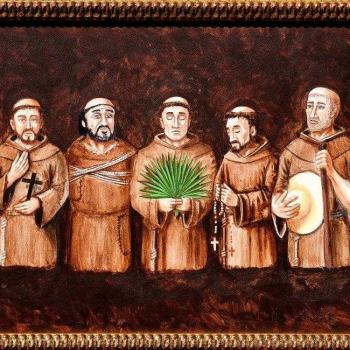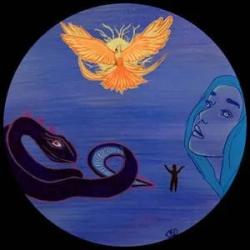Previously in the same section of comments Mefferd connected her displeasure for the presence of a Sikh at the RNC with that of a Mormon:
"This adds new spin to my view of what's going on at the RNC right now because you still hear a little bit of talk of God here and there, but it's different. When Mitt Romney talks about God, he's not talking about our God and he has yet to give his speech yet. But we now have a party that is allowing people to pray at the Republican National Convention who don't have the slightest similarity to us, when it comes to our view of God, at all. At all."
It is likely that Mefferd's comments resonate with a good portion of her audience. She would hardly articulate views that would contribute to a program with diminished listeners, lower ratings, and fewer sponsors. If this assumption is correct, then a popular radio personality articulates views that may be shared by a large number of her Evangelical audience that complicate a positive view in regard to the question of Evangelicals and the Romney vote.
First, Mefferd uses a troubling metaphor about religious syncretism "seeping under the door like a gas." In so doing she casts religious pluralism in America's political process in terms of invisible threat and danger. Does American politics, or at least the Republican Party, need some kind of "religious syncretism detector" that functions much like a carbon monixide alarm to warn of the dangers of pluralism and to maintain Judeo-Christian purity?
Second, Mefferd is not only concerned about the dangers of certain religions, like Sikhism, being involved in the RNC, but she also voices concerns about Romney. She acknowledges that "he talks about God," but also warns that "he's not talking about our God," presumably meaning the God of Protestant Evangelicalism. These do not sound like the sentiments of an Evangelicalism that has moved beyond its concerns with Mormonism, content to rally around unifying themes in social issues.
In 1960 John F. Kennedy gave a speech to a group of Christian religious leaders and the country in the hopes of alleviating Protestant concerns about the potential for a Roman Catholic as president. In this stirring speech Kennedy said:
"I believe in an America that is officially neither Catholic, Protestant, nor Jewish—where no public official either requests or accepts instructions on public policy from the Pope, the National Council of Churches, or any other ecclesiastical source—where no religious body seeks to impose its will directly or indirectly upon the general populace or the public acts of its officials—and where religious liberty is so indivisible that an act against one church is treated as an act against all."
Fifty-two years after this historic speech America turned a corner on Roman Catholicism in the political process, but it may not have done so with other religions. Members of minority religions wonder what their place is in the public square and our political processes, and a new documentary, Unresolvable? The Kingdom of God on Earth, produced by the Foundation for Religious Diplomacy, suggests that the place of Mormons and other minority religions may still be on the margins as Evangelicals and other Protestants continue to struggle with the presence of religious pluralism in the American experiment.




